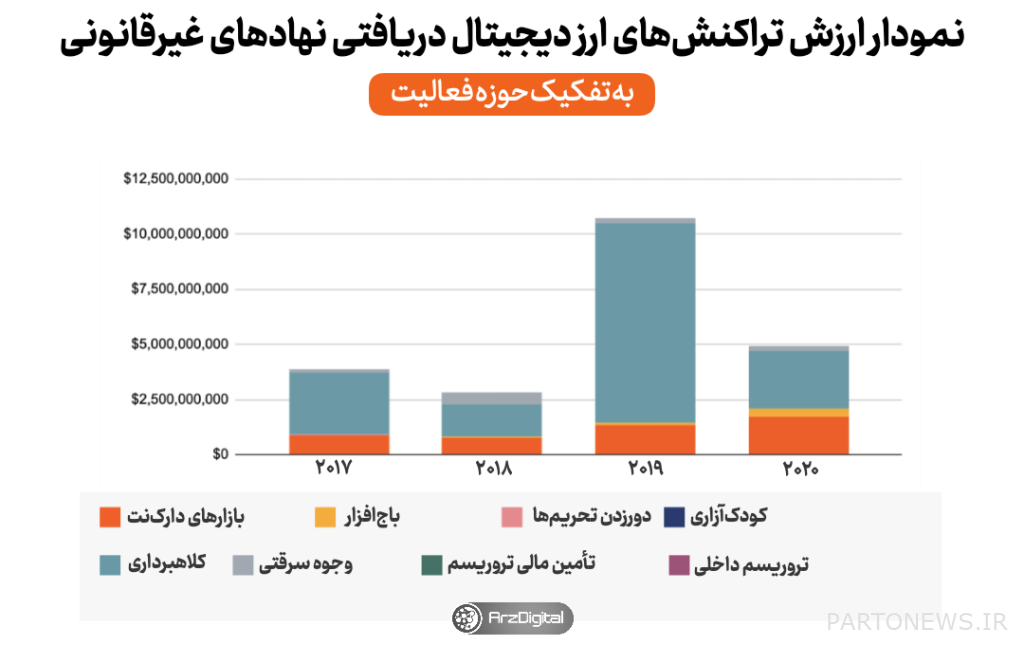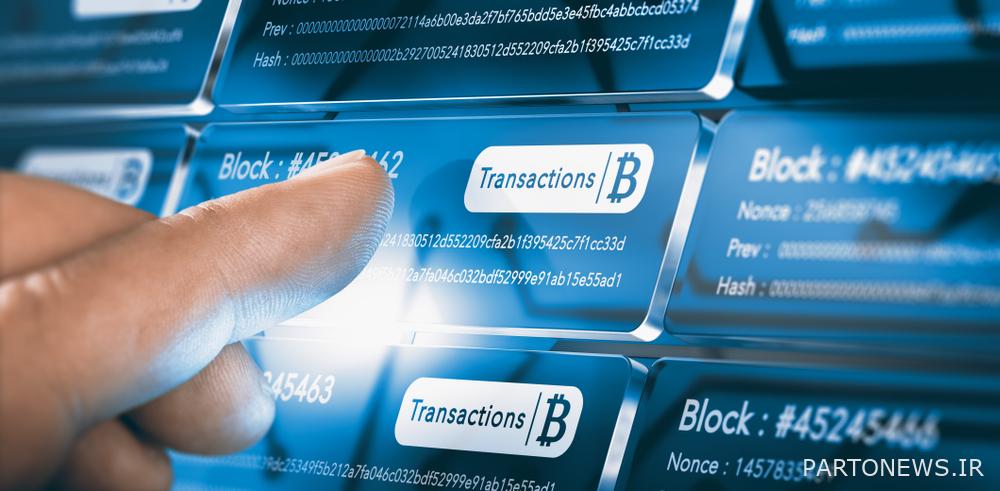Scrutiny of the use of digital currencies in criminal activities; Statistics do not confirm the rumors

The idea that bitcoin is a currency for criminal activity was first mooted by policymakers and some business owners. Jamie Dimon, CEO of JPMorgan Bank, is one of the people who believes in this. He claims that bitcoin is only used for “criminals and the people of North Korea.” “Bitcoin is used to do some weird and interesting things, and another application is in the abusive money laundering business,” said Christine Lagarde, president of the European Central Bank.
Bitcoin is slowly making its way into official policy. Last month, the Biden administration, as part of its anti-corruption campaign, launched a Justice Department program to focus on complex investigations and prosecute the misuse of digital currencies in criminal activities, using a newly formed team called the National Digital Currency Action Task Force. (NCE) unveiled.
The fear that has arisen over the use of digital currencies in crime has no logical basis. The use of digital currencies in criminal activities is only a small part of the use of these assets.
Based on that Report According to the CryptoSlite website, we have examined the use of digital currencies in illegal activities; A comprehensive review that has also yielded interesting results.
Also read: Crimes in the world of digital currencies; Challenges and coping strategies
Statistics do not confirm the rumors
A report on the Elliptic website shows that less than one percent of all bitcoin transactions in 2020 were related to illegal activities. In 2012, the rate of bitcoin transactions associated with illegal activities was estimated at 35 to 40 percent.
Another report on digital currency crimes in 2021, published by Chainalysis, tells a similar story. The share of criminal activity in all digital currency transactions, which was estimated at 2.1 percent ($ 21.4 billion) in 2019, rose to 0.34 percent ($ 10 billion) in 2020.
If we look at the data more closely, the credibility of the notion that digital currencies have penetrated deep into the world of organized crime will be completely lost. Most of the illegal activities involving digital currencies have been financial scams, and these assets have not played a significant role in financing terrorism, human trafficking or the drug trade.

Despite all the controversy surrounding the use of digital currencies for criminal purposes, it is important to keep in mind that the currencies offered by governments also show weaknesses in dealing with this issue. .
The United Nations estimates that money laundering worldwide is between $ 800 billion and $ 2 trillion a year. Even if $ 10 billion worth of digital currency is used for criminal activity, it means that Fiat money is about 80 to 200 times more used in money laundering than digital assets. It should also be noted that this amount only includes money laundering, not other criminal activities. This means that the use of Fiat money in crimes is much more than these figures.
In short, those who continue to lie in the face of this overwhelming evidence are those who deal with large amounts of Fiat money, including central banks and traditional financial sector activists.
Nothing is hidden in the Chinese bloc

Where does this common misconception about the anonymity of people in the Chinese bloc come from? The clearest reason is probably that digital currencies are not issued or controlled by governments. This, combined with the intangible nature of digital assets that exist only on the Internet, makes it easy to see why some people think digital currencies are easily used in criminal activities.
However, anyone familiar with the operation of Chinese blockchain networks will reject these claims. The fundamental nature of Chinese blockchain networks, such as Bitcoin and Atrium, is general. Data on thousands of transactions are recorded daily in the general ledger, and thousands of authentication systems, such as miners, approve or reject them. Each digital currency transaction is associated with a specific wallet recorded in a public China blockchain. All transactions are publicly accessible so that others can be informed, and this can be used to authenticate individuals.
Digital currencies are actually very unsuitable for illegal activities. Criminals want their money to be untraceable, and that is the purpose of money laundering. The general and decentralized nature of blockchains like bitcoin does exactly the opposite of what they want.
The US Department of Justice has previously confirmed this:
Digital currencies provide law enforcement with an exceptional tracking tool, and that is the Chinese blockchain. The Historically Distributed General Register of Blockchains does not record the names of the parties to the transaction; But it provides researchers with enough information about how transactions are made, when and how much digital currency is transferred. Also, this information is publicly available and no subpoenas or warrants are required to obtain it.
The issue of the privacy of the coins

Opponents of this argument may refer more to privacy-based wallets, such as the Wasabi wallet, or digital currencies such as Monero and ZCash. Such tools and currencies use more mechanisms such as zero-knowledge proof, one-time secret addresses, and ring signatures technology. These mechanisms allow users to hide the details of the transaction and the wallet address of the sender or recipient, thus enhancing user privacy.
There are several important points to consider when dealing with this issue. First, the emergence of these privacy-based technologies since the advent of bitcoin clearly means that bitcoin is not suitable for any type of criminal activity in which a person seeks anonymity. If the use of bitcoin was a good choice for criminals, there would be no reason for currencies like Monroe and Zyx to emerge.
Roger Ver, a longtime supporter of Bitcoin, has said that Monroe has a huge advantage over Bitcoin in terms of privacy, and “if one wants to use Bitcoin for privacy, one has to be really careful.” .
Also read: What is Monero? + Video
Another point to note is that although in theory bitcoin may be more suitable for crime; Its use is almost negligible. Blockchain companies such as Elliptical have found that the amount of bitcoins sent to privacy-based wallets for money laundering is small, accounting for only 13 percent of total criminal revenue by 2020. This amount has increased by 2% compared to 2019.
To understand how trivial this can be, let’s assume that the Bitcoin market value is $ 1 trillion. According to Chinalis, nearly one percent of all Bitcoin transactions, or $ 10 million, were linked to criminal activity in one year. Taking into account 13% of this number, it can be said that only $ 1.3 million of bitcoins have been transferred for criminal purposes and through wallets based on privacy; That number is small compared to the annual criminal costs incurred in the world.
Not surprisingly, the Prosciutto Coins have not been able to surpass Bitcoin in terms of involvement in criminal activity. The market value of Monroe and Zyksh is much lower than the bitcoin market, which is estimated at nearly $ 1 trillion, and is about $ 3 billion. Criminal organizations whose operations involve the transfer of trillions of dollars probably do not use these digital currencies due to the lack of liquidity in the market.
Opponents of digital currencies are unlikely to change their minds any time soon. If you repeat enough lies enough, it will eventually be accepted as the truth. It does not matter how the existing data is distorted for the personal purposes of individuals and organizations; Because this information does not confirm the scenario they have drawn about the use of digital currencies in criminal activities.

